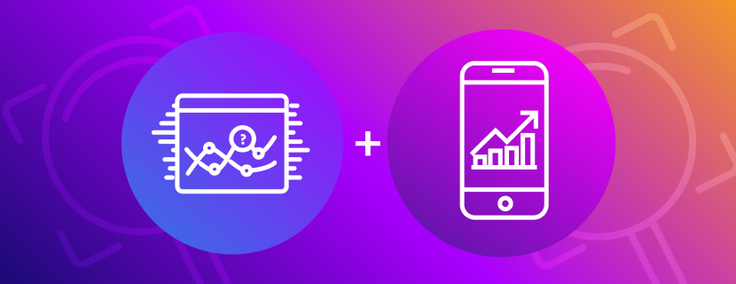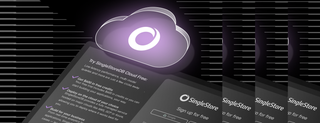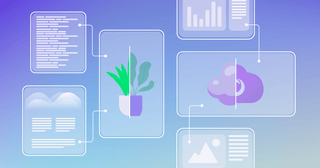
What are analytical applications, and how do they impact your business? We’ve got everything you need to know about this essential, real-time tool.
What Are Analytical Applications?
As an increasing number of businesses seek ways to leverage data to enhance insights and gain efficiencies, analytical applications have emerged as essential tools for improving performance.
Analytical applications deliver comprehensive and concise insights that business leaders can use to take action — empowering you to innovate, streamline operations and accelerate company growth. By processing vast amounts of raw data, analytical tools can produce reports and data visualization that provide intelligence, guiding executives and other company leaders in making strategic decisions.
Businesses use these analytical applications, often referred to as business intelligence tools or BI analytical applications, to make decisions in real time about how to prioritize areas of your operations that can lead to the most impact, minimize abandonment of invaluable customers, ensure you achieve your goals and meet service-level agreements for your customers.
Data analytics can improve business operations for companies in varying industries. Every organization can collect, maintain and analyze data to gain insights on how to improve performance and evaluate growth opportunities. Through analytical applications (or analytical apps, for short), you can leverage data in the following industries to achieve your objectives:
Energy & Utility
Energy companies rely on the ability to continuously monitor and analyze data on various complex systems to ensure they're operating at a high rate of efficiency — as well as maximizing profits and performance. Analytical applications give you the ability to make real-time decisions in areas like energy distribution, energy optimization and smart grid management.
See how a major oil and gas company improves financial reporting in a volatile market
Financial Services
Analytics applications also can give financial businesses, including portfolio managers, investment banks and endowments the tools needed to quickly gain real-time data insights on investment alternatives, make more informed investment decisions and streamline their analytical processes. This allows CFOs and other financial experts to get a more comprehensive view into budgeting, forecasting, financial planning and portfolio management.
Here’s how Bitwyre powers an ultra-fast, scalable, resilient and secure cryptocurrency exchange
Transportation
Using analytical applications, companies specializing in transportation services can analyze data to help them meet customer expectations for delivery. Analytics can be used to anticipate traffic delays, plan alternate routes and make other predictive decisions to enhance and streamline operations.
Digital Advertisement
Companies specializing in advertising can use analytical applications to leverage data insights about the most effective advertising mediums for specific audiences. These can include advertising on websites, digital billboards and other advertising mediums.
Media & Entertainment
Using analytical applications, organizations can gain insights into customer and behavioral data to deliver the best entertainment experience for their customers based on their preferences.
What Is An Analytics Application Tool?
What is an analytics application tool? Since the late 1980s, when the amount of data being generated began to accelerate, innovations in analysis became increasingly important. The analytics application tool emerged as software that businesses use to measure and analyze data — and gain insights to improve the performance of their operations.
Various types of mobile analytics and web app analytics tools are now leveraged as business intelligence (BI) to help executives make sense of vast amounts of data. These analytics application tools provide users with the insights they need to streamline operations, increase efficiencies and make other improvements in their business functions.
An analytics application tool may include various features to enhance analysis, including dashboards, interactive data visualizations and reporting that provide you with real-time insights into your company’s data. These tools are used in various industries and across different departments including marketing, sales and finance.
Advantages of Analytical Apps
Analytical apps, which can be leveraged by users at various levels, provide a logical and contextual view of the data your business generates. Depending on your needs, the analytical application can provide an easy-to-digest visualization or report of what you need to address specific questions.
When using analytical applications, organizations gain the following advantages:
Actionable insights. With analytical applications, you can identify areas for improvement, gain a better understanding of target audiences, increase profitability, reduce costs and maximize opportunities for improvement.
- Competitive advantage. By gaining business intelligence through an analytical application tool, you can make decisions based on data insights in real time — a significant advantage if competitors are not leveraging the same tools.
- Data-in-context. Without a team of experts on board, you may not be able to make sense of all the data a business generates. Manual analysis of data is also time consuming. Analytical applications provide easy-to-understand visualizations and reports from a user-friendly dashboard, minimizing the time it takes to generate an actionable, contextualized analysis.
Application Of Analytics In Business
When considering an application of analytics in business, it’s important to first consider the unique needs of your company, as well as the industry. For example, the application of business analytics in agriculture may be significantly different from the application of business analytics in finance.
Currently, many agribusinesses leverage business analytics to address the need for more agricultural output to meet the needs of the growing world population. Analytical applications are used on initiatives to increase productivity through insights gathered from advanced technology like soil sensors, weather tracking and GPS-equipped tractors.
By gaining access to real-time data on weather patterns and insect behaviors, farmers can make important decisions about crops. As a result, they can more effectively reduce waste, increase yield and boost profits. Analytics can also be used to better meet customer demands and improve supply chain management.
Other considerations should be weighed, including the importance of business analytics in the processing and analysis of data for various departments and individual users. Organizations also should determine if a prospective vendor has provided applications of data analytics in business for companies of similar sizes and industries.
For many organizations, the business analytics process typically involves participation among various departments to enhance collaboration for optimal outcomes. By sharing marketing and sales data in real time with operations or manufacturing, you and your team can better anticipate customer demands for products. As a result, you should consider extending the use of the application to various team members, not just data analysts.
You also need to determine if the analytics tool is robust enough to gather, analyze and process the amount of data your organization generates from various sources. The tool also must be capable of providing visualizations and reports to deliver a comprehensive analysis in one location.
Another consideration is the ability of the analytics tool to be personalized to meet the company's specific requirements. The tool should accommodate your company's goals — as well as ensure that all designated team members can use it.
Application Of Data Analytics
As demonstrated among the organizations that use it, the application of data analytics can produce different outcomes based on the industries in which it is used. For that reason, many organizations seek data analytics providers that have worked in their respective industries. Besides finance and agriculture, some of the leading analytical applications have been used in education, healthcare and business (among others).
Application of Data Analytics in Education
Through data analysis in the education field, educators can identify academic areas where students are performing well, or struggling. They also can be used to determine a student’s learning style. As a result, schools can leverage data to give students a more personalized approach, promoting more comprehensive, successful education plans. The application of data analytics in education can also assess a student’s academic strengths, guiding their future education and career.
From an administrative standpoint, analytical tools can be used to streamline tasks like enrollment, recruitment and processing student information.
Application of Data Analytics in Healthcare
With medical facilities gathering various types of patient data from electronic health records, patient portals, smartphone apps and other devices, health professionals can get a more holistic view of each patient to determine how to best address their needs.
Data analytics in healthcare can also use this information to capture overall trends in a specific location or among a certain demographic to determine if actions for a community are necessary. For instance, data analysis during the COVID-19 pandemic played a critical role in helping health experts and public officials determine high rates of infection in a certain area — and respond accordingly.
Application of Data Analytics in Business
Many businesses have used analytical apps to gain invaluable data insights to help them become more profitable. The benefits of data analytics in the business realm can be far-reaching — from helping companies personalize the customer experience to attract and retain more buyers, to streamlining operations and mitigating risks like theft.
For instance, businesses in the retail industry can use data analytics to determine the optimal price for products based on current sales and predictive analysis of customer demand. They also can make long-term projections, like employee hires and increased production based on seasons.
After making decisions based on business intelligence in a limited market, company leaders can also assess data to inform business decisions on a larger scale. As a result, a company can minimize losses and maximize profits.
SingleStoreDB for Analytical Applications
To truly be effective, analytical applications require an approach that taps into real-time capabilities — reducing time-to-insights for fast analytics on even the most dynamic data.
To truly be effective, analytical applications require an approach that taps into real-time capabilities — reducing time-to-insights for fast analytics on even the most dynamic data.
SingleStoreDB is design for real-time analytical applications. With a data architecture that unifies transactional and analytical workloads, SingleStoreDB mitigates the performance bottlenecks and unnecessary data movement that often contributes to lackluster application performance.
Interested in learning more? Get started with a free trial of SingleStoreDB today. You can also check out more resources for analytical applications here:
- Blog: Why SingleStoreDB for Real-Time Analytics & Applications
- Solution Brief: Supercharge Your SaaS Applications
- Customer Story: SingleStoreDB Powers IEX Cloud With Ultimate Real-Time Application Analytics





